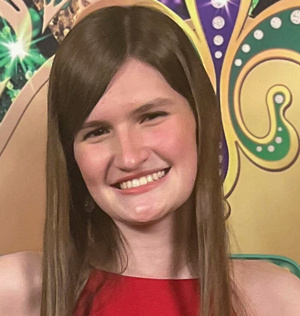by Sophia Strobel
When looking deep into the deceptive state of South Carolina, you will see that not all counties are equal. While some are flourishing, others are in slums, and this difference is highlighted in many of our schools. The way South Carolina funds its schools gives unfair advantages to some districts, which has taken a toll on our education rankings. Not only does distributing funds among districts based on local property wealth create unfair competition between schools, but it also lowers our state's graduation rates, in turn discouraging students.
Schools here in the Palmetto State rely on the property taxes of their respective districts, meaning that the more money each district has, the better funded its schools will be (American University 2020; Young and Thornburg 2022). For example, Spartanburg District One has a total of eleven schools, including two high schools. These schools, Chapman and Landrum, are known as some of the best high schools in the area. District One had a median property tax value of $279,200 in 2020, which is 1.21 times larger than the national median (DataUSA “District 1” n.d). Compare this to Spartanburg District Three. District Three only has six schools, including Broome High School, which is greatly underfunded in comparison to other high schools in the area. District Three's median tax value is also only $150,400 (DataUSA “District 3” n.d.). This is an extremely unfair difference for a country founded on the values of equality and opportunity. It is unjustifiable that one child cannot get the same quality of education as another less than an hour away simply because they live in an area with a lower property tax value.
It has been demonstrated that increased spending on schools increases graduation rates and boosts long-term income (Jackson, Johnson, and Persico 2015). South Carolina is ranked embarrassingly low, currently ranking number forty out of fifty states in pre-K-12 education. (U. S. News 2023). Compare this to New Jersey, which is ranked number one. There, money is allocated much differently, as “there are three types of financial aid that the state awards local school districts annually through the state budget: equalization aid, categorical aid and grants earmarked for specific district(s) and/or specific purpose(s)” (Jones 2014). South Carolina's system of funding is flawed and a change that moves away from reliance on property taxes is needed to improve. According to an article by Martin and colleagues, “When states invest in their public schools and create more equitable school finance systems, student achievement levels rise, and the positive effects are even greater among low-income students” (Martin et al. 2018).
Many choose to turn a blind eye to these unfair problems and simply say this notion is ill-placed and ill-advised despite the mounting evidence suggesting otherwise. Instead of continuing to use this not only faulty but also unconstitutional system, we should work as a state to better our children's schools and create an equal and fair environment for all students. South Carolina is the only state in the country that exempts primary homeowners from paying property taxes to fund school operating costs (SC Chamber Foundation, SC Realtors, and Lincoln Institute of Land Policy 2020). It is unreasonable for these taxes to be the main source of income for schools when many people are exempt from paying them. While it may take time to shift to a new and improved system of funding, it will be worth it in the long run when we start having higher graduation rates, more financially stable citizens, and a truly fair and just education system that treats all people equally, despite their financial status or where they live.
Overall, the main problem with South Carolina's system of funding schools based off of districts’ property taxes is that it both creates unfair disadvantages to schools and discourages our students, decreasing SC’s high school graduation rates. This problem could be fixed by simply funding our schools more equitably to ensure that all students can get the same quality of education and not have to worry about their current economic status. Making this change would ultimately help our state by creating a more educated and financially stable population.
Works Cited
American University School of Education Online. 2020. “Inequality in Public School Funding: Key Issues & Solutions for Closing the Gap.” Blog. September 10, 2020. https://soeonline.american.edu/blog/inequality-in-public-school-funding/.
Data USA. n.d. “Congressional District 1, SC.” Profile. Accessed October 4, 2023. https://datausa.io/profile/geo/congressional-district-1-sc.
Data USA. n.d. “Congressional District 3, SC.” Profile. Accessed October 4, 2023. https://datausa.io/profile/geo/congressional-district-3-sc.
Jackson, C. Kirabo, Rucker C. Johnson, and Claudia Persico. 2015. “The Effects of School Spending on Educational and Economic Outcomes: Evidence from School Finance Reforms.” The Quarterly Journal of Economics 131(1): 157–218.
Jones, Christopher. 2014. “School Finance 101.” School Leader 44, no. 4 (January/February). New Jersey School Boards Association. https://www.njsba.org/newsinformation/parent-connections/school-finance-101/.
SC Chamber Foundation, SC Realtors, and Lincoln Institute of Land Policy. 2020. “A Deep Dive on South Carolina’s Property Tax System: Complex, Inequitable and Uncompetitive.” Vol 1. Cambridge: Lincoln Institute of Land Policy, 2020.
Martin, Carmel, Ulrich Boser, Meg Benner, and Perpetual Baffour. 2018. “A Quality Approach to School Funding.” The Center for American Progress, November 13, 2018. https://www.americanprogress.org/article/quality-approach-school-funding/.
U. S. News & World Report. 2023. “Pre-K-12.” Education Rankings. Accessed October 4, 2023. https://www.usnews.com/news/best-states/rankings/education/prek-12.
Young, Sarah and Matthew P. Thornburg. 2022. “South Carolina School Property Taxes Survey.” USC Aiken. Accessed October 4, 2023. https://www.usca.edu/history-political-science-philosophy/opportunities/ssbrl/south-carolina-school-property-taxes-survey.

About Sophia Strobel
Sophia Strobel is a junior at James F. Byrnes High School in Duncan, where Dr. Susanne Cash is her AP Language and Composition teacher. In her free time, she enjoys painting, drawing, and learning new languages – Brazilian Portuguese is her first. Sophia participates in competitive dance and wants to work as an electrical engineer.